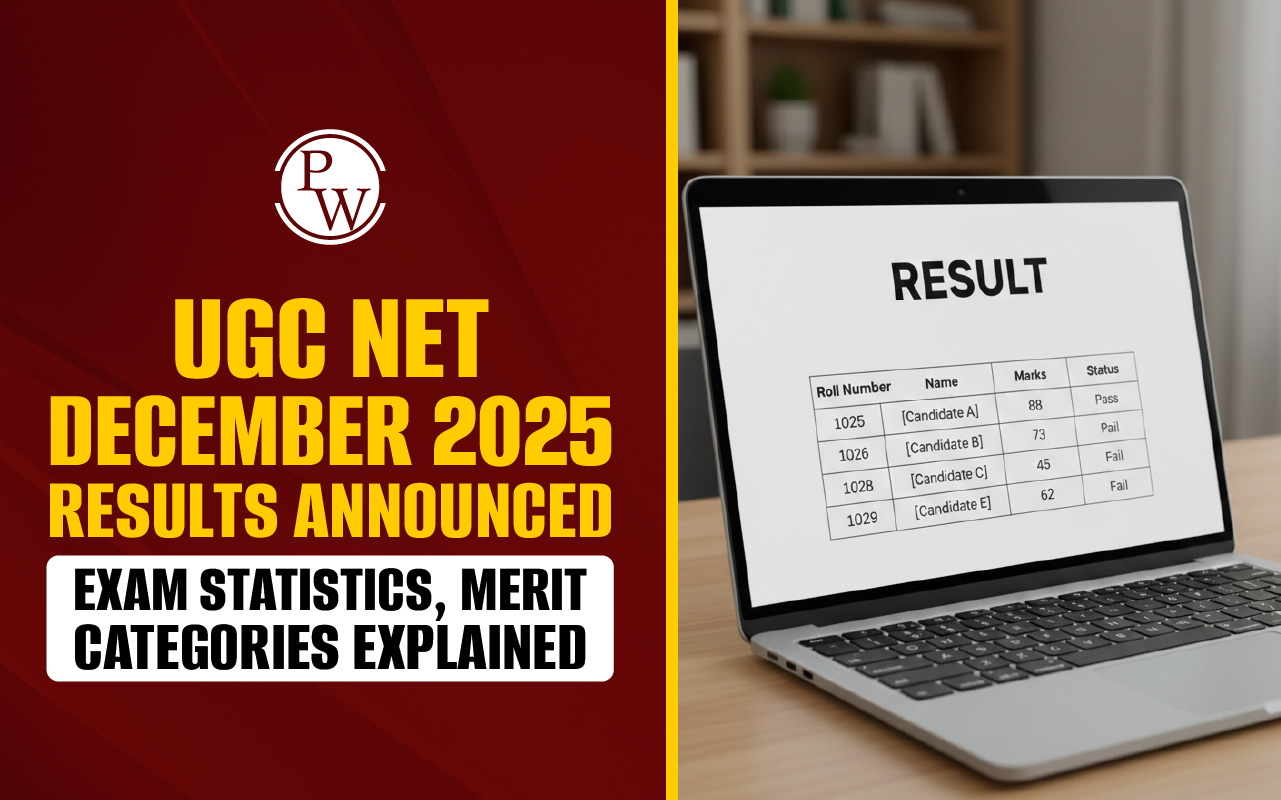
UGC NET Economics Exam Analysis 2025 provides a detailed evaluation of the exam conducted by the National Testing Agency (NTA) as part of the UGC NET June 2025 cycle. Held in online CBT mode, the exam aimed to assess candidates for the posts of Assistant Professor and Junior Research Fellowship (JRF). This analysis is based on comprehensive student feedback and expert faculty reviews, covering key insights into the difficulty level, important topics, question patterns, and good attempts. It serves as a valuable guide for aspirants planning future attempts or evaluating their performance in the 2025 session.
UGC NET Economics Exam Analysis 2025 Overview
UGC NET June 2025 Economics exam, held on 29th June 2025 from 3:00 PM to 6:00 PM in online CBT mode by the NTA, tested candidates on core economic concepts. This UGC NET 2025 Economics Exam Analysis is based on extensive student feedback and expert faculty review. It offers insights into difficulty levels, good attempts, and question patterns, helping aspirants align their preparation strategies for securing qualifying marks and achieving success.
| UGC NET Economics Exam Analysis 2025 Overview | |
| Events | Details |
| Conducting Body | National Testing Agency (NTA) |
| Exam Name | UGC NET Economics Exam |
| Posts | Assistant Professor and Junior Research Fellowship |
| Exam Level | National |
| Exam Frequency | Twice a year |
| UGC NET Notification Release Date | 19th June, 2025 |
| UGC NET Economics Exam Date | 29th June, 2025 |
| Mode of Exam | Computer-Based Test |
| Language/Medium of Exam | English and Economics |
| Number of Papers and Total Marks |
|
| Exam Duration | 3 hours (180 minutes) |
| Official Website | ugcnet.nta.nic.in |
UGC NET Economics Exam Analysis 2025 Shift & Timing
In keeping with the standard exam schedule, the UGC NET Economics Exam 2025 took place during Shift 2 on 29th June, from 3:00 PM to 6:00 PM, in computer-based testing mode across designated centers. Candidates had a total of three hours to attempt both papers, requiring effective time management. Clear communication of timings and smooth conduct enabled aspirants to allocate adequate time to both Paper 1 and the specialized Economics Paper 2, ensuring consistent performance across sections.
| UGC NET Economics Exam Analysis 2025 Shift & Timing | |
| Shift 1 | 3:00 AM to 6:00 PM |
UGC NET Economics Exam Analysis 2025 Paper 1 Difficulty Level & Good Attempts
UGC NET 2025 Economics Exam Analysis reveals that Paper 1 was easy to moderate, aligning with historical trends. Sections like Teaching Aptitude and Data Interpretation were straightforward, while Logical Reasoning and ICT presented moderate challenges. Based on student feedback, a good attempt range of 36–45 questions out of 50 was identified. This performance insight is critical for anticipating the UGC NET Economics Difficulty Level and estimating chances of clearing the qualifying threshold, especially when coupled with strong subject-specific answers.
| UGC NET Economics Exam Analysis 2025 Paper 1 Difficulty Level & Good Attempts | ||||
| UGC NET Paper 1 Sections | Topics Covered | Difficulty Level | No. of Questions Asked | Good Attempts |
| Teaching Aptitude | Reflective Teaching, Cooperative Teaching, Direct Learning, Types of Counselling, Learning Process, Formative Assessment, , Bloom Tax, Swayam Prabha, MOOCs, Udemy, Edx, | Easy | 5-6 | 3-4 |
| Research Aptitude | Correlation & Co-Efficient,Sampling, Ethics of Research, Protocol, Applied Basic Qualitative, Plagiarism, Numerical, Hypothesis, Types of Research | Moderate | 4-5 | 3-4 |
| Data Interpretation | Age, Percentage, Ratio,I.S.A | Moderate to Hard | 4-5 | 3-4 |
| Reading Comprehension | Questions based on a passage | Easy to Moderate | 4 | 3-4 |
| Maths | Ratio, Proportion, Number System, CI, SI, Series, Boats & Stream, Coding, Decoding, Alphabet | Easy to Moderate | 5-6 | 4-5 |
| Logical Reasoning |
Contrapositive, Converse, Analogy, Vaypati, Relevance Fallacy, Decreasing Extension, Syllogism, Experimental Research, CSOP, Equivalent, Stats, Barrier |
Moderate | 4-5 | 3-4 |
| Communication | Chacha Chaudhary, Types of Communication, Khan Academy, Communication Model, Circular Model Sequence, Barrier | Moderate | 4-5 | 2-3 |
| Higher Education System, Governance, Polity & Admin | DU, IISS, Buddhist Education System, Soadh Ganga,Full Form, IRAHE, Commission Chronology, National Curriculum, Kothari | Moderate | 4 | 3-4 |
| People & Environment |
Stage of Disaster Mangement, Eutrophication, Earthquake, Noise Pollution, Pollutants, MDG, SDG Goals, SDG Target, Water Treatment, Precipitation, Kyoto Protocol |
Easy to Moderate | 5-6 | 4-5 |
| Information & Communication Technology (ICT) | PAN, Decimal, VPN, CD ROM, Network, Security, Firmware, Server Security, MODEM, WIFI, Memory, HTML, HTTP, Virus, Tools | Moderate | 4-5 | 4-5 |
| Overall | Easy | 50 | 36-45 | |
UGC NET Economics Exam Analysis 2025 Difficulty Level
Moving to UGC NET Economics Difficulty Level, Paper 2 focused on advanced microeconomics, macroeconomics, econometrics, and development economics. Students reported a mix of concept-driven and analytical questions, including models, diagrams, and data interpretation. Difficulty was moderate to hard, with econometric questions and applied economics being particularly challenging. A solid theoretical foundation and data interpretation skills were essential to tackle these questions efficiently and maintain accuracy under exam conditions.
| UGC NET Economics Exam Analysis 2025 Difficulty Level | ||
| Unit Name | Topics Asked | Difficulty Level |
| Micro Economics | Consumer Surplus, Substitution Effect, Nash Equilibrium, Dominant Strategy, Game Theory Basics, Case Theorem Characteristics, Rational Expectations, New Classical Assumptions | Easy to Moderate |
| Macro Economics | IS-LM Model, Rational Expectations, Neo-Classical Model, Lucas Critique, GDP Comparison (Nominal), Steady Growth, Effect of Saving, Effect of Population | Easy to Moderate |
| Statistics and Econometrics | Dice and Probability, Comprehension on Set and Probability, Features of Asymmetric Distribution, Statistical Tools | Moderate |
| Mathematical Economics |
Optimization Problems, Functional Equations, Game Theory Models, Nash Equilibrium, Dominant Strategy |
Moderate |
| International Economics | Balance of Payments (BOP), Current Account Deficit (CAD), FDI Sector, Heckscher-Ohlin Model (Heckacker), Foreign Trade Policy, Integration, GDP Ranking of Countries | Moderate - Hard |
| Public Economics |
Public Economics |
Moderate |
| Money and Banking | RBI Preamble Amendment, Monetary Policy Tools, Banking Sector Reforms | Moderate - Hard |
| Growth and Development Economics | Kaldor Stages of Growth, Solow Growth Model, Stages of Take-off, Distinction among Areas, Steady State Growth, Effect of Population, Lucas Critique | Moderate - Hard |
| Environmental Economics and Demography | Father of Demographic Economics, Population Theories, Demographic Transition, Environmental Externalities | Moderate |
| Indian Economy | Indian Economic Reforms, Foreign Trade Policy (India), FDI Policy, Books on Indian Economy (e.g., Kames Books), Ranking of India by Nominal GDP | Easy to Moderate |
| Overall | Moderate | |
UGC NET Economics Exam Analysis 2025 Good Attempts
According to the UGC NET Economics Good Attempts analysis, a safe scoring range in Paper 2 was 70–80 attempts out of 100, based on faculty estimation and student reports. Units like Microeconomics, Indian Economy, and Development Economics were relatively scoring, while Demography and Econometrics posed moderate difficulty. Aspirants who targeted these key areas and maintained accuracy are likely to achieve the UGC NET qualifying marks and secure their position in the merit list.
| UGC NET Economics Exam Analysis 2025 Good Attempts | |||
| Unit Name | Topics Asked | No. of Questions Asked | Good Attempts |
| Micro Economics | Consumer Surplus, Substitution Effect, Nash Equilibrium, Dominant Strategy, Game Theory Basics, Case Theorem Characteristics, Rational Expectations, New Classical Assumptions | 12–14 | 9–11 |
| Macro Economics | IS-LM Model, Rational Expectations, Neo-Classical Model, Lucas Critique, GDP Comparison (Nominal), Steady Growth, Effect of Saving, Effect of Population | 10–12 | 8–10 |
| Statistics and Econometrics | Dice and Probability, Comprehension on Set and Probability, Features of Asymmetric Distribution, Statistical Tools | 10–12 | 8–10 |
| Mathematical Economics | Optimization Problems, Functional Equations, Game Theory Models, Nash Equilibrium, Dominant Strategy | 8–10 | 6–8 |
| International Economics | Balance of Payments (BOP), Current Account Deficit (CAD), FDI Sector, Heckscher-Ohlin Model (Heckacker), Foreign Trade Policy, Integration, GDP Ranking of Countries | 10–12 | 8–10 |
| Public Economics | Public Economics Budget Expenditure, Types of Deficit, Features of Public Debt, Feature of Allocation, Tax Commission, Chairperson of Finance Commission |
8–10 | 6–8 |
| Money and Banking | RBI Preamble Amendment, Monetary Policy Tools, Banking Sector Reforms | 10–12 | 8–10 |
| Growth and Development Economics | Kaldor Stages of Growth, Solow Growth Model, Stages of Take-off, Distinction among Areas, Steady State Growth, Effect of Population, Lucas Critique | 6–8 | 5–6 |
| Environmental Economics and Demography | Father of Demographic Economics, Population Theories, Demographic Transition, Environmental Externalities | 6–8 | 5–6 |
| Indian Economy | Indian Economic Reforms, Foreign Trade Policy (India), FDI Policy, Books on Indian Economy (e.g., Kames Books), Ranking of India by Nominal GDP | 6–8 | 5–6 |
| Overall | 100 | 58-67 | |
UGC NET Economics Exam Analysis 2025 Question Type
UGC NET 2025 Economics Exam featured objective-type multiple-choice questions across both papers. In Paper 2, candidates encountered concept-based queries, numerical problems, diagram interpretation, match-the-following, and case-based questions. These formats tested both theoretical grasp and analytical application. Familiarity with common economic models, statistical tools, and current economic trends was necessary, reflecting a balanced assessment approach that evaluated both knowledge depth and problem-solving ability.
UGC NET Economics Exam Analysis 2025 Expected Cut Off
Considering the moderate-to-hard difficulty level and good attempt patterns, the UGC NET Economics Expected Cut Off for the General category is estimated at 58–62%, while OBC/EWS may fall around 54–58%. This translates to roughly 118–124 marks out of 200. The final UGC NET qualifying marks will be influenced by normalization and overall performance. Candidates scoring in this range with balanced performance in both papers are well-positioned for selection.
UGC NET Economics Exam Analysis 2025 FAQs
What was the overall difficulty level of the Economics exam?
How many attempts are considered safe in Paper 1?
What's a good scoring range in Economics Paper 2?
Any surprises in the question pattern?
What is the expected cut-off?










